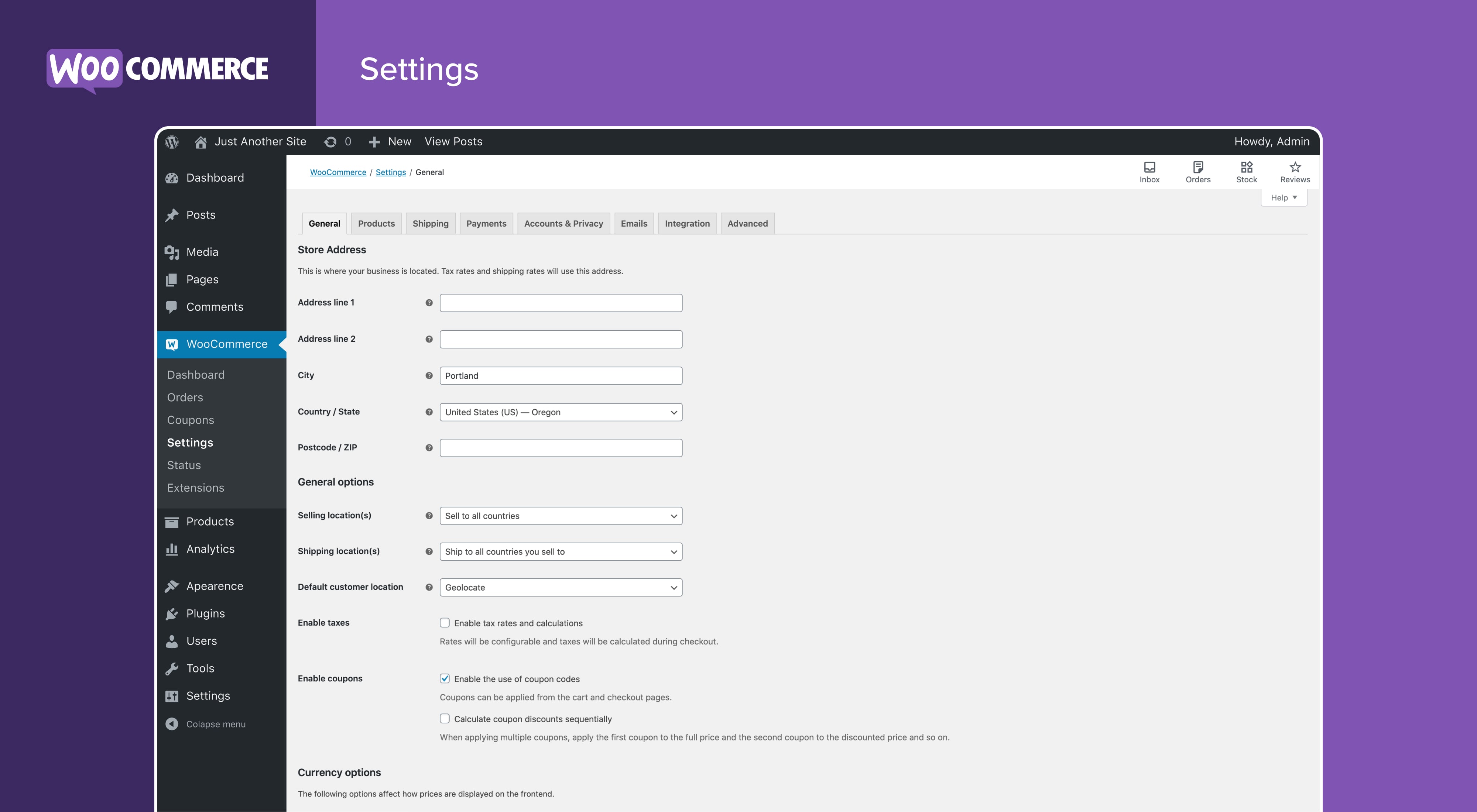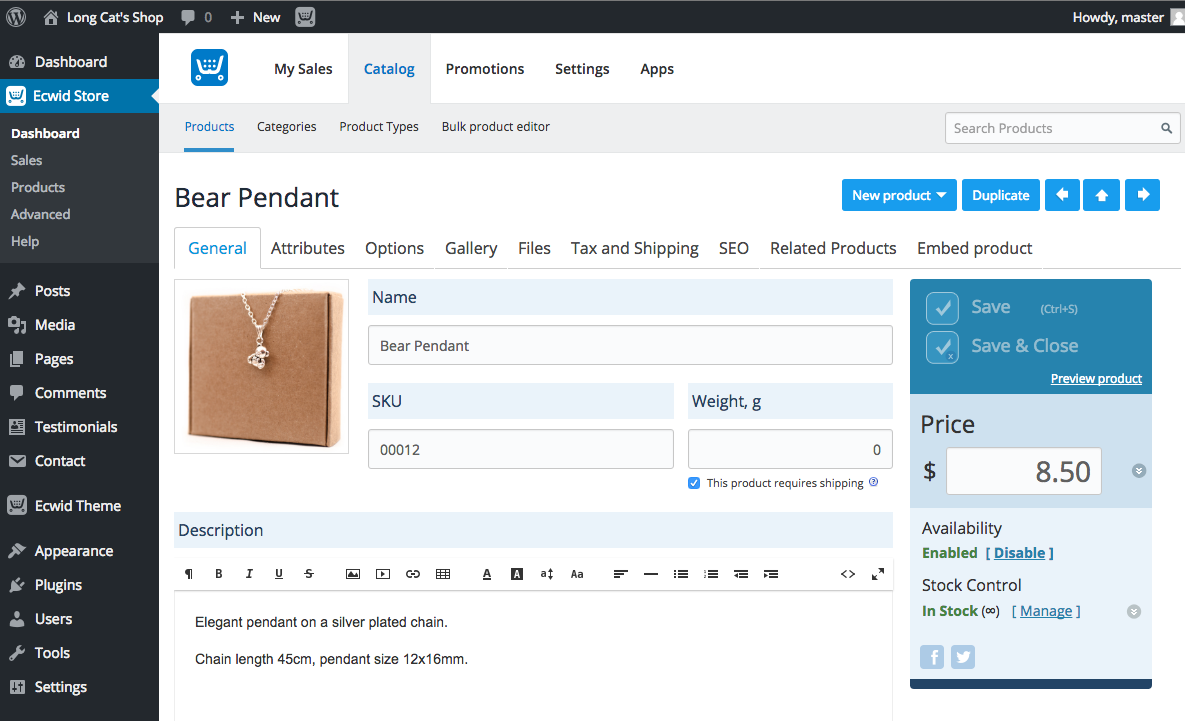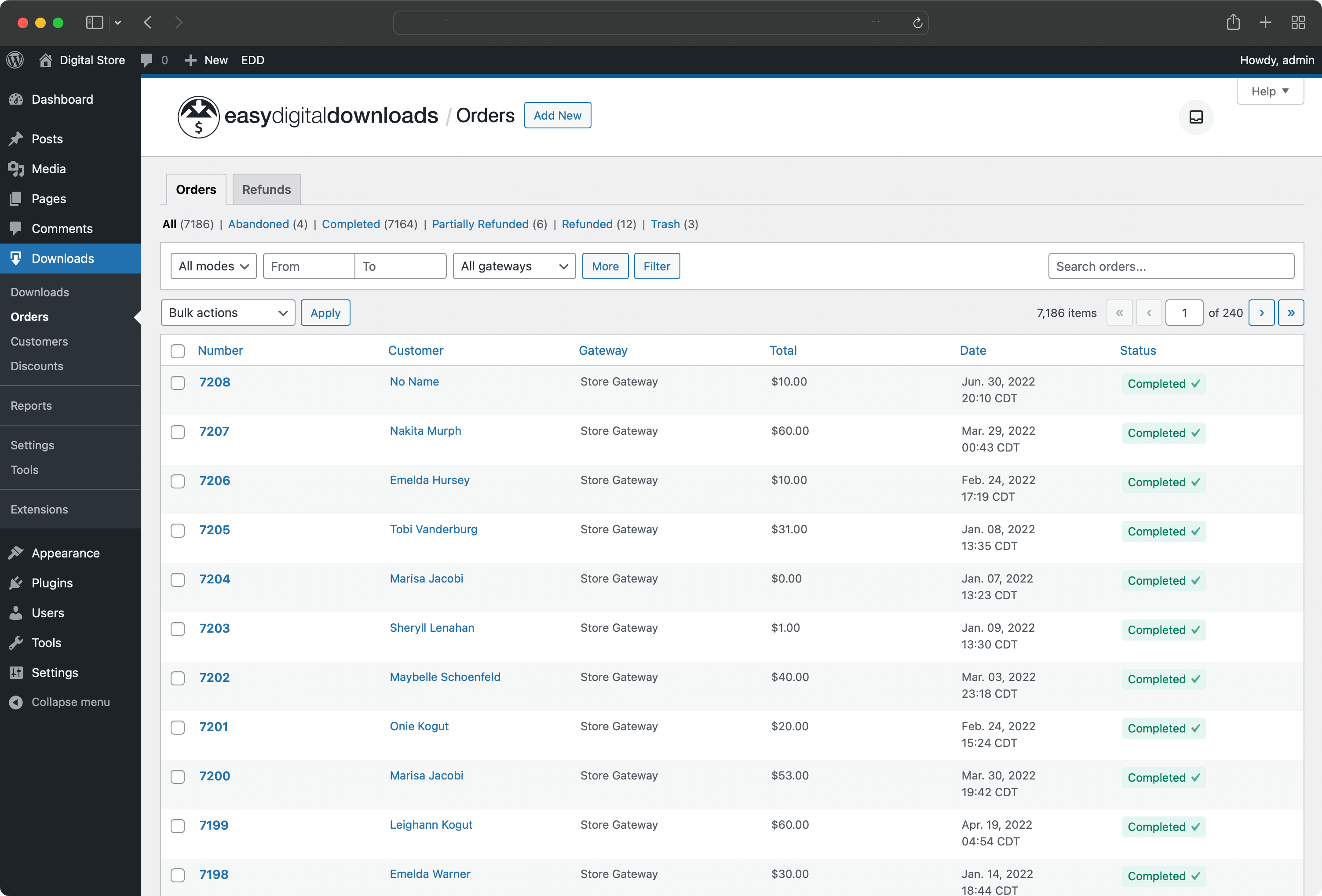Selling products online is a viable way to earn revenue in several markets. All you need is a competent platform that allows you to publish your items and make them available to potential customers.
Such platforms usually do all the heavy lifting of configuring and maintaining your online store so that you can focus on your sales strategies. Among these platforms is one most commonly associated with blog publishing: WordPress!
Yes, you can create a WordPress ecommerce website! After all, the biggest advantage of working with WordPress on your website is being able to extend your features with the right plugins.
Those can add new features that entirely change what you can offer to your visitors. And one of these features is an online store.
You do not need programming knowledge to work with a WordPress ecommerce. By having the right strategy and a well-built site, you can count on the best plugins to turn your WordPress website into an online store.
Here is everything you will learn in this article. Check it out:
Why Choose WordPress for Ecommerce?
When creating your own ecommerce site, one of the first decisions you need to make is selecting the platform for your online store. Options like Shopify, WooCommerce, Squarespace, and others are available.
However, you might be surprised to learn that WordPress, the renowned Content Management System (CMS) primarily known for blog publishing, is also an excellent option for ecommerce. WordPress’s versatility allows it to be customized to fit your needs, including online sales.
Choosing WordPress depends on what you want from your store. Specific ecommerce platforms can lock you into their environment. In contrast, WordPress offers unparalleled versatility and allows for a truly customizable approach.
WordPress is powered by templates, or themes, which can dramatically change your website’s appearance based on your preferences. It’s the ideal choice for those seeking a personalized online store, benefiting from its extensive library of plugins.
In summary, here are the main advantages of using WordPress for ecommerce:
- Self-Installation or Hosting Services: You can install WordPress yourself or use a hosting service that handles the installation automatically.
- Content-Focused Platform: WordPress is primarily a publishing platform, so you’ll need to install plugins for extra functionality.
- Extensive Plugin Library: WordPress offers a vast array of plugins to extend your store’s features, including SEO configurations, multi-language support, and automatic backup solutions.
- Customizable Templates: There is a large library of templates to change your website’s look and feel, and you can even commission custom designs through a specialist.
Using WordPress for ecommerce gives you the flexibility and customization needed to create a unique and effective online store.
When to Use WordPress for Ecommerce
Considering the unique features of WordPress for ecommerce, it’s an excellent choice if you value flexibility and customization for your online store. While it may seem daunting at first, WordPress offers unparalleled freedom to tailor your store to your specific needs.
Most ecommerce platforms offer a standardized package: for a monthly fee, you get a system that manages your store’s backend. However, this often means working within a rigid, less customizable environment. The advantage is that you typically receive robust tech support from these providers.
WordPress, on the other hand, is highly flexible and open-source. If you already have a WordPress site, many ecommerce platforms offer plugins to integrate their features seamlessly into your existing setup. This ensures continuity in the way you and your team operate.
Still unsure? Here are the key scenarios where WordPress for ecommerce is the best choice:
- If you have a branded, personalized template that only works with WordPress.
- In case you already use WordPress for your website and are familiar with its features and configurations.
- If you want to save on costs by using a free platform instead of a paid one.
- When you have quality tech support from your hosting service to assist with any WordPress-related issues.
- If you don’t need many features offered by paid ecommerce platforms and prefer to build your own setup with the right plugins.
WordPress provides the flexibility and control needed for a customized and efficient online store, making it an ideal choice for many ecommerce ventures.
What Are The 6 Best Plugins For Ecommerce?
Obtaining ecommerce functionality for your WordPress site is essential to turn it into an online store. To do that, you must download and install the right WordPress plugins.
There are multiple options to choose from, so the task might be intimidating. However, we are here to help with that.
Below, you can check out the 6 best WordPress ecommerce plugins you should consider using. Enjoy!
1. WooCommerce

WooCommerce is one of the most famous WordPress plugins for ecommerce. While it is an online store platform you can use externally, you can also add it to your WordPress site as a plugin.
For starters, WooCommerce is completely free. Its main selling point is simplicity, since it allows people with vastly different knowledge levels to sell products on their websites running WordPress.
This is done through an easy-to-use interface and a modular configuration scheme, where you add only what you need.
With it, you can also easily add multiple payment options to your site, such as credit and debit cards, digital wallets, and others. WooCommerce handles all the back-end so that you do not have to worry about programming and configuring everything.
WooCommerce can also integrate with external services such as social networks, Google Ads, HubSpot, and others.
2. BigCommerce

BigCommerce is an external ecommerce platform with a plugin to bring its features to WordPress sites.
It promises scalability and does most of the heavy lifting itself, so your website’s performance does not take a hit in speed and uptime. BigCommerce has strong global support in terms of payments, as it works with over 250 payment methods worldwide.
Through its API calling back-end, BigCommerce can keep your inventory up-to-date by syncing with ERPs, PIMs, and other management systems you might have integrated with WordPress. Lastly, it works well with most WordPress themes.
Working with BigCommerce on your WordPress site will set you back $29.95 per month through its standard subscription.
3. Shopify

Shopify is another option people think of when choosing an ecommerce platform but it is also available as a WordPress plugin. With it, you can leave the job of managing an online store to the platform and focus on what really matters: your sales strategies.
Unlike other ecommerce plugin choices, Shopify works externally from WordPress. This means that it starts working off its servers when your user clicks on the “Buy” button. That way, all back-end features such as payment processing and cart experience are handled by Shopify.
Just like WordPress itself, Shopify’s features can be extended through add-ons. You can look through the Shopify apps to add functionalities you need in your online store.
Shopify has a 14-day free trial for you to try out its features. After that period, you have to sign up for the paid plans that start at $199 per year.
4. Ecwid Ecommerce Shopping Cart

Ecwid Ecommerce Shopping Cart is different from the others since it is not exclusively a WordPress ecommerce plugin, as it can work with other CMS platforms such as Wix, Weebly, and even social network sites like Facebook and Instagram.
Because of this, working with Ecwid on your WordPress site is a great first step into having the ability to sell simultaneously on multiple channels. This is a valuable trend in ecommerce that offers a lot of convenience to the buyer.
As with most WordPress ecommerce plugins, Ecwid has an easy-to-configure interface and allows a quick way to organize your products and categories. It can also work well with most WordPress templates.
Ecwid has a forever-free version, but it can be upgraded for $21 per month for extra functionalities.
5. Ultimate WordPress Auction

Not only can you create your own WordPress ecommerce but you can also make it into an auction site. Just install a plugin such as Ultimate WordPress Auction.
With Ultimate WordPress Auction, you can display products and allow users to bid on them. Whenever there is an update to these bids, the people involved receive notifications. Everything is powered by Ajax, so it is fast and does not require too many reloads.
It supports most payment options available, such as PayPal. You can also set a reserve price for your product and bid incremental values. A countdown timer can also be added to the interface.
Ultimate WordPress Auction has a free plan and can be upgraded for $79 a year for extra features.
6. Easy Digital Downloads

What if you want to sell digital products instead of physical ones? Then, you might want to choose a WordPress ecommerce plugin such as Easy Digital Downloads.
From e-books to other kinds of digital goods, you can create product pages and have them behave like a proper ecommerce process. The user can add purchases to a cart and even save its contents for later.
Purchasing can be done either through registration or guest checkout, which offers a lot of convenience for users. Easy Digital Downloads also supports discount codes, data reporting, and individual records for customers.
The personal plan costs $89.55 per year.
How to Get Started with WordPress for Ecommerce
Are you interested in using WordPress for your ecommerce store? First, you need to get familiar with the platform itself.
WordPress is a free CMS that can be downloaded from the official website. You will need a hosting service where you can install these files. Fortunately, many hosting services offer automated WordPress installations, simplifying this process for you through specialized and reliable WordPress hosting like Stage.
When you first open your WordPress admin panel, it might seem overwhelming. Focus on what you want to achieve, especially if you plan to use WordPress for ecommerce. Start by installing one of the recommended ecommerce plugins.
You can do this through the Plugins section. Simply search for the plugin you want to install — for example, “WooCommerce” — and click Install. Then, select Activate to enable it.
Each WordPress ecommerce plugin works differently, so follow the onscreen instructions or seek help from the plugin’s support team.
What are the Best Practices for WordPress Ecommerce?
Now that you know how to set up WordPress for ecommerce, it’s time to consider best practices to enhance your chances of success. The ecommerce market is competitive, and implementing these strategies can help you stand out.
Facilitate Registration and Purchasing
Ensure that using your WordPress ecommerce site is straightforward. People want quick and easy results. Simplify user registration and the purchasing process. Some WordPress ecommerce plugins even allow purchases without requiring registration, increasing your chances of success.
Create SEO-Friendly Content
Optimize your product pages for search engines. SEO isn’t just for blog posts; it’s crucial for product pages too. Use plugins like Yoast SEO to automate this process, ensuring your product pages rank well on Google and identifying any issues that need fixing.
Keep Your Structure Updated
Regularly update WordPress and your plugins to fix bugs and patch vulnerabilities that could compromise your site’s security. Neglecting updates can leave your store vulnerable to attacks. You can see if updates are available by checking the left sidebar for notifications next to Plugins and the Updates option under Dashboard.
Be Transparent
Trust is vital for online shopping. While WordPress ecommerce plugins handle the technical aspects, you must ensure your store appears trustworthy. Display your contact information clearly and provide detailed policies on returns and issue resolution.
Final Thoughts
WordPress ecommerce offers immense value for your sales goals.
By following these tips, you can start making sales and leveraging WordPress’s flexibility to suit your specific needs.
Want to learn more about using WordPress for different types of websites? Download our free guide on WordPress for corporate blogs and discover how to use this platform to achieve your goals.


![[ROCK NA] [EBOOK SEO] Complete Guide](https://rockcontent.com/wp-content/uploads/2024/06/banner_Search-Engine-Optimization.png)






